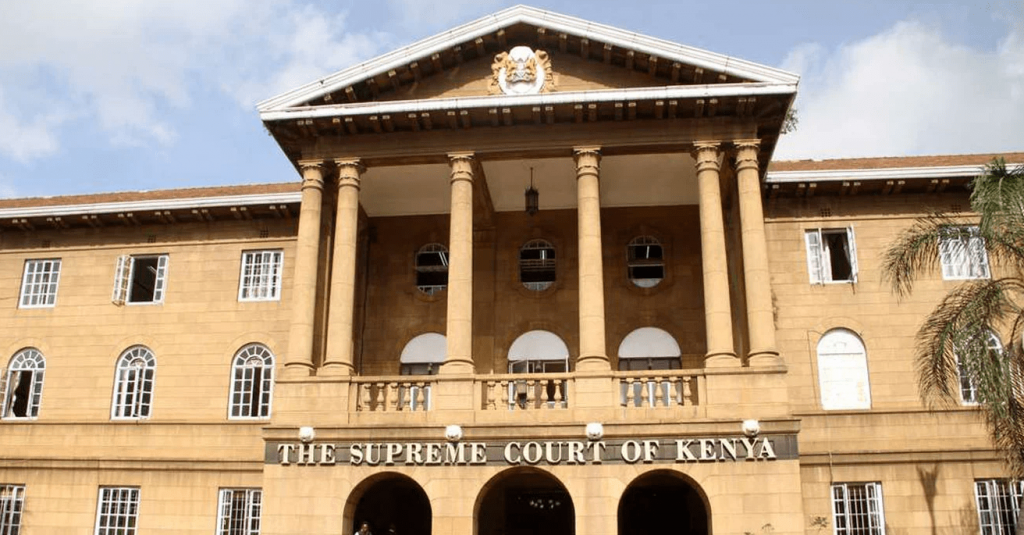By Robert Kaniu Gitonga
Kenya has historically struggled with land grabbing, which entails illegal allocation of land meant for public purposes to private individuals and corporations in total disregard of the public interest, as per the Report of the Commission of Inquiry into the illegal/irregular allocation of public land (the “Ndung’u Land Commission”).
According to the report by the Ndung’u Land Commission, land grabbing was “so pervasive” that “there was real danger that Kenya could be without a public land tenure system (at the turn of the 21st century)”.
Land-grabbing crisis was recently highlighted in the Supreme Court of Kenya’s ground-breaking ruling in the Dina case, which focused on the principle of indefeasibility of title. This is the process by which a land title acquired in good faith and for valuable consideration cannot be challenged or defeated by someone else’s claim to the same property, except in specific circumstances defined by law.
Notably, indefeasibility of title is the cornerstone of land registration. This law states that once a person’s title to land is registered, it is considered valid and conclusive unless certain limited exceptions apply. However, the Supreme Court’s ruling in the Dina case demonstrated how this principle cannot shield landowners from the consequences of illegal and improper land acquisition.
The case centred on a beachfront property registered to Dina Management Limited (Dina). The County Government of Mombasa demolished Dina’s perimeter wall to create a road to the beach, leading to a dispute over ownership. Dina claimed it had acquired the property from Bawazir & Co Ltd, which had purchased it from former President Daniel Arap Moi. However, the Environment and Land Court had previously ruled that the property’s alienation was illegal.
Dissatisfied with the ELC’s judgment, Dina appealed to the Supreme Court, where the key issue became whether the interpretation of a bona fide purchaser unreasonably limited property rights. The Supreme Court clarified the elements of a bona fide purchaser, highlighting the need for a valid and legal title, proper due diligence to establish the lawful owner, and payment of valuable consideration. The Court stated that presenting the title alone is insufficient when its legality is in question; the registered proprietor must prove the acquisition was legal and free from
encumbrances.
In its ruling, the Supreme Court declared that the disputed property was initially designated as open space and thus considered a public utility, making it ineligible for alienation to any private individual. Therefore, Moi’s purported transfer of the land to Bawazir & Co Ltd was invalid. As a result, the chain of ownership leading to Dina Management Limited was also unlawful.
One of the key takeaways from the Supreme Court’s decision is that the right to property, as enshrined in Article 40 of the Constitution, is not absolute and can be limited if the property was unlawfully acquired. In this case, the court found the initial allocation of the land to Moi was irregular and unauthorised, rendering subsequent transfers void.
This ruling sends a message to landowners, especially those who hold titles obtained through questionable means. It underscores the importance of conducting thorough due diligence before purchasing land to ensure it is both legal and legitimate. It also highlights the responsibility of land registries and authorities to ensure that public land is not unlawfully converted to private ownership.
Overall, the ruling serves as a reminder that the principle of indefeasibility of title should not be exploited to legitimise illegal land transactions, and it reaffirms the commitment of the judiciary to uphold the rule of law in matters of land ownership and allocation.
The writer is senior real estate law associate from leading corporate and commercial law firm Cliffe Dekker Hofmeyr Kenya (CDH) unpacks how a recent ruling impacts the basis on land ownership in Kenya.


